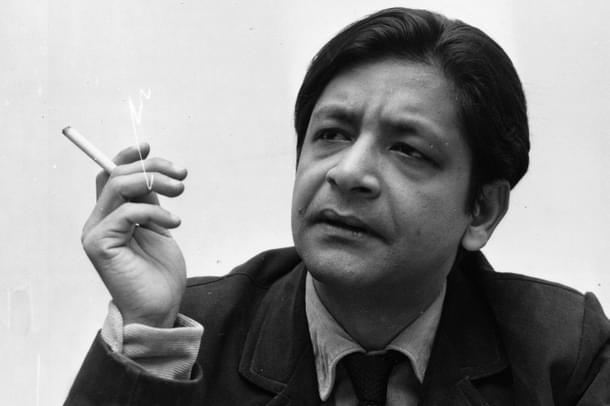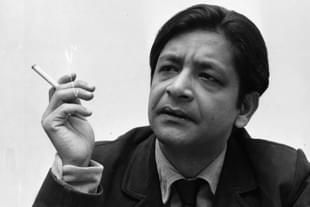People
Nobel Prize-Winning Author VS Naipaul Dies: Here Are Some Of His Famous Quotes
Swarajya Staff
Aug 13, 2018, 12:36 PM | Updated 12:36 PM IST
Save & read from anywhere!
Bookmark stories for easy access on any device or the Swarajya app.


Nobel Prize-winning novelist V S Naipaul, known for works like A Bend in the River and The Enigma of Arrival, died in London on Saturday.
Born in 1932 to a family that had arrived in Trinidad from India in the 1880s, Naipaul was known for his writings on colonialism and decolonisation, exile and the struggles in the developing world. Naipaul published more than 30 works spanning both fiction and nonfiction. Some of his famous books are A House for Mr Biswas, India: A Million Mutinies Now, The Middle Passage and The Overcrowded Barracoon. His book An Area of Darkness is a semi-autobiographical account of a trip to India in the 1960s.
Naipaul travelled to the Muslim-majority countries of Iran, Pakistan, Malaysia and Indonesia for his books Among the Believers (1981) and Beyond Belief (1998). His work on Islam, earned him the rage of left-wing “intellectuals”.
Here are some of his famous quotes:
1) From ‘India: A Wounded Civilization’ published in 1976:
India has been a wounded civilization because of Islamic violence: Pakistanis know this; indeed they revel in it. It is only Indian Nehruvians like Romila Thapar who pretend that Islamic rule was benevolent. We should face facts: Islamic rule in India was at least as catastrophic as the later Christian rule. The Christians created massive poverty in what was a most prosperous country; the Muslims created a terrorised civilization out of what was the most creative culture that ever existed. India was wrecked and looted, not once but repeatedly by invaders with strong religious ideas, with a hatred of the religion of the people they were conquering. People read these accounts but they do not imaginatively understand the effects of conquest by an iconoclastic religion.
2) He told The Hindu in 1998:
I think when you see so many Hindu temples of the tenth century or earlier time disfigured, defaced, you know that they were not just defaced for fun: that something terrible happened. I feel that the civilization of that closed world was mortally wounded by those invasions. And I would like people, as it were, to be more reverential towards the past, to try to understand it; to preserve it; instead of living in its ruins. The Old World is destroyed. That has to be understood. The ancient Hindu India was destroyed.
3) From ‘India: A Million Mutinies Now’ published in 1990:
A passage from âIndia: A million mutiniesâ #Naipaul pic.twitter.com/GHiNnpAgpb
— Rahul Pandita (@rahulpandita) August 12, 2018
4) On Ayodhya, according to Patrick French:
For the poor of India to identify something like this, pulling down the first Mughal emperor’s tomb, is a marvellous idea. I think in years to come it will be seen as a great moment.... It would be a historical statement of India striving to regain her soul. What puzzled me and outraged me was the attitude that it was wrong, that one must not undo the [Muslim] conquest. I think it is the attitude of a slave population.
5) From ‘The Enigma of Arrival’ published in 1987:
Men need history; it helps them to have an idea of who they are. But history, like sanctity, can reside in the heart; it is enough that there is something.
Naipaul was awarded the 1971 Booker Prize for his novel In a Free State and in 2001 won the Nobel Prize for Literature. His first book, The Mystic Masseur, was published in 1957. His most celebrated novel, A House for Mr Biswas, which took more than three years to write, was published in the year 1961.





